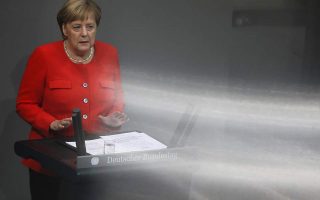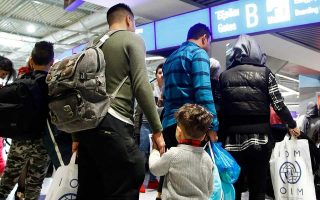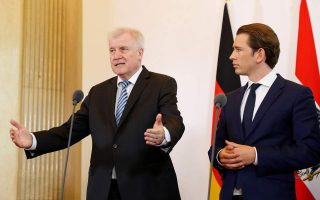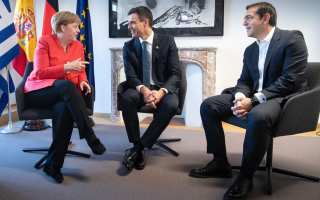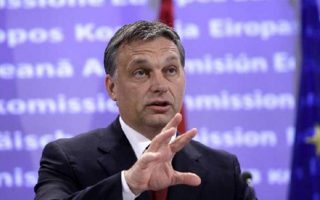Growing concern about child refugees as EU leaders remain split
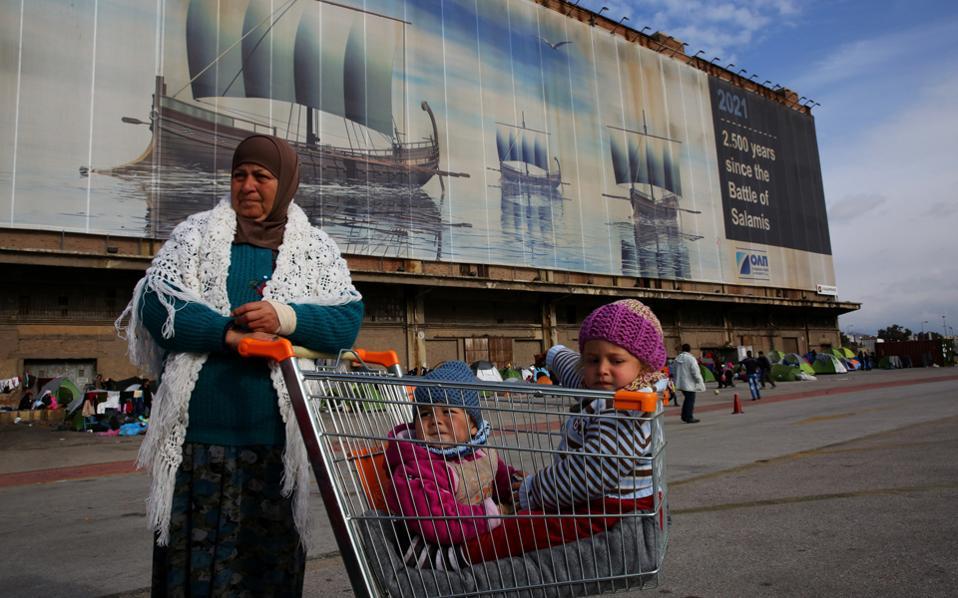
As concerns grow about worsening conditions at reception facilities on the Aegean islands, European Union leaders meeting in Salzburg, Austria, on Thursday discussed migration pressure on the bloc’s external borders, but divisions remained over how to tackle the problem.
By late on Thursday night there had been no update on reports that Greece will be permitted to transfer thousands of migrants from the islands to the mainland, while plans to boost the presence of the EU border agency Frontex were put off until spring.
The idea of offering financial incentives to EU member-states unwilling to take in refugees from Greece and Italy was mooted by European Commission President Jean-Claude Juncker and German Foreign Minister Heiko Maas before German Chancellor Angela Merkel dismissed the idea as unacceptable, as did Luxembourg Premier Xavier Bettel.
The discussion came as human rights groups ring the alarm bell about dire conditions at some Greek reception camps, calling for the immediate transfer of vulnerable migrants to the mainland.
Meanwhile there is growing concern about child refugees. Research by the National Center for Social Solidarity (EKKA) has revealed that of the 3,280 unaccompanied minors who are currently in Greece, only 1,191 are in organized accommodation, with around 430 sleeping on the street and another 280 who were registered on their arrival in the country now unaccounted for.
A total of 138 unaccompanied minors are currently staying at police precincts while 306 are at reception facilities with adults they do not know.
A key concern, according to nongovernmental organizations, is that no new facilities for minors have been opened over the past two years despite the fact that the European Union has allocated funding for the purpose.
Since the beginning of the year, when the Finance Ministry assumed the management of the funds in question, the delays in disbursements have increased, according to Anastasios Yfantis, operations director at Doctors of the World’s Greek chapter.
“The EU funding is there but it is not being given, though we have to respect the law and pay our social security contributions every month,” Yfantis told Kathimerini.
According to the organization’s most recent report, between 40 and 45 percent of the children who end up in state-funded hostels after months on a waiting list have serious mental health problems and require special care.
“The worst thing is that lots of children have come into contact with crime and drugs at the camps they have stayed at,” Yfantis said.
The NGO Metadrasi, for its part, was forced to close two facilities for unaccompanied minors in the past year due to financial restrictions.
Lora Pappa, the NGO’s president, said that the tough criteria governing the foundation and operation of hostels for unaccompanied minors have resulted in thousands of children languishing in “wretched” camps.
Of the 18,400 migrants at reception facilities on the Aegean islands, around 6,000 are children.
